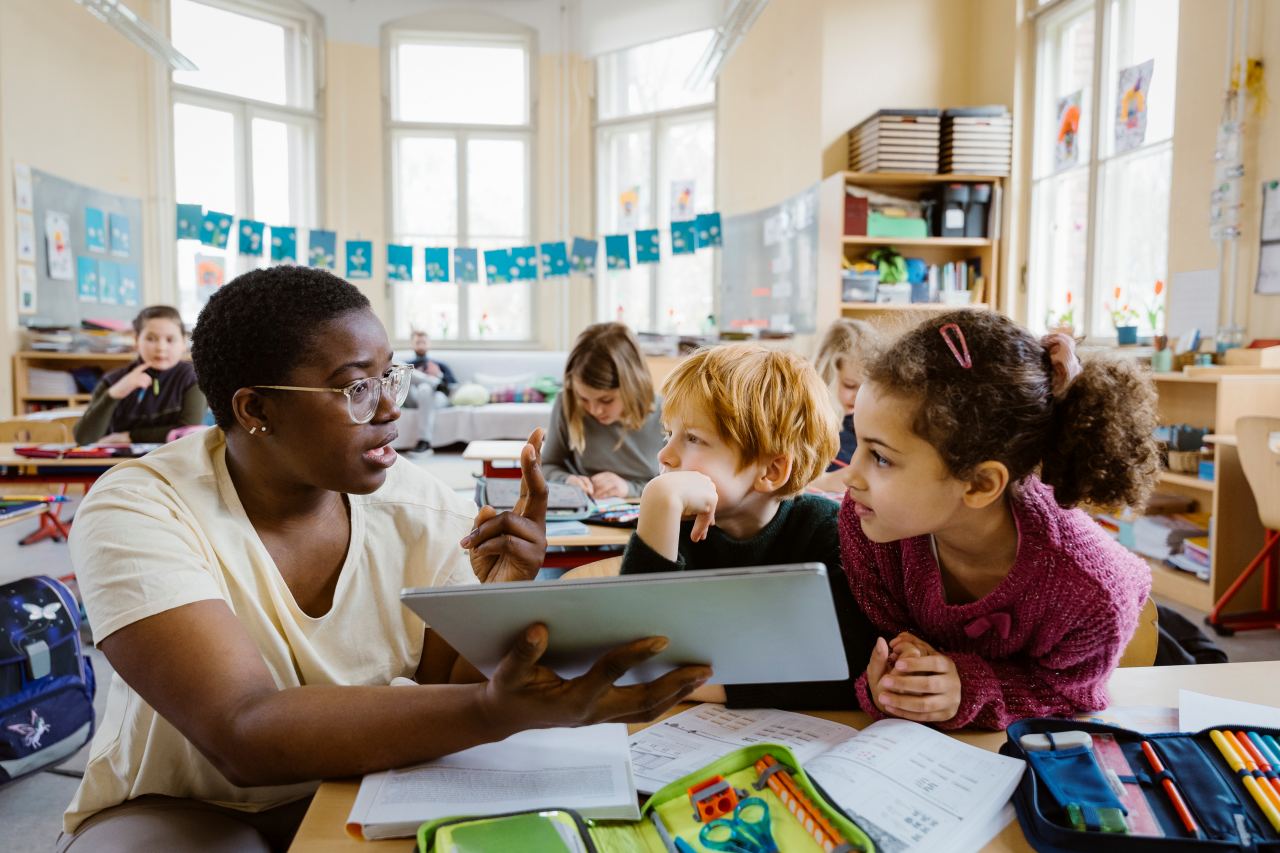Expert Primary Science Tuition Singapore for Understanding Complex Concepts
Expert Primary Science Tuition Singapore for Understanding Complex Concepts
Blog Article
Checking Out the Various Training Strategies in Key Science Education And Learning Today
The landscape of key scientific research education is advancing, with various training strategies gaining prestige in contemporary classrooms. Inquiry-based learning, hands-on experiments, and the integration of innovation are redefining how educators involve young minds. Furthermore, collective strategies and distinguished instruction are being utilized to provide to the diverse demands of trainees, boosting both involvement and understanding. As we take a look at these approaches, questions emerge concerning their efficiency and the implications for future instructional methods. What might these shifts in technique mean for the next generation of students?
Inquiry-Based Learning
Inquiry-Based Discovering (IBL) is a pedagogical strategy that urges trainees to check out scientific ideas via questioning, investigation, and hands-on experimentation. This technique stresses the role of pupils as energetic individuals in their learning, promoting vital thinking and analytical abilities. By involving with real-world concerns, students end up being inspired and interested, which enhances their understanding of scientific principles.
In IBL, teachers work as facilitators, guiding students as they navigate their queries instead of providing info straight. This student-centered method enables distinction, suiting various learning styles and paces. Students create abilities in creating theories, developing experiments, and analyzing data, which are important for scientific proficiency.
Additionally, IBL fosters collaboration amongst trainees, urging them to share concepts and searchings for. This cumulative questions promotes social skills and a feeling of area within the class. The procedure of query urges strength, as trainees find out to accept failure as a tipping stone toward understanding.
Hands-On Experiments
Hands-on experiments are an essential part of efficient science education and learning, matching the principles of inquiry-based learning. These experiments permit trainees to involve straight with scientific concepts, cultivating a much deeper understanding through experiential understanding. By controling products and observing results, young learners can realize abstract theories in substantial methods.
Such activities advertise critical reasoning and problem-solving abilities, as trainees hypothesize end results, conduct experiments, and assess outcomes. This procedure encourages them to ask inquiries, fine-tune their understanding, and create a scientific state of mind. Hands-on experiments can be customized to diverse understanding designs, guaranteeing that all students have the opportunity to engage meaningfully with the content.
Moreover, hands-on experiments frequently urge collaboration amongst peers, advertising team effort and communication skills. Operating in groups allows students to share ideas, review findings, and find out from each other, which enhances their overall academic experience.
Including hands-on experiments right into the key scientific research educational program not just enriches the learning environment however likewise cultivates a lifelong rate of interest in scientific research. By proactively joining their education, students are most likely to establish an interest for clinical questions that expands past the classroom.

Innovation Assimilation
Incorporating technology into main scientific research education has actually become progressively necessary in promoting student involvement and improving finding out outcomes. Using electronic devices, such as interactive simulations, digital labs, and academic software program, supplies pupils with possibilities to discover clinical principles in cutting-edge means. These resources help with a deeper understanding of intricate topics by permitting students to imagine and adjust variables that would certainly be unwise in a conventional classroom setup.
In addition, innovation combination encourages individualized discovering experiences. Trainees can proceed at their very own speed, revisiting tough principles via multimedia resources, which cater to various discovering styles. This versatility not only sustains private growth yet additionally grows a sense of freedom in learners.
In addition, innovation acts as a bridge to real-world science, attaching students with existing research study and specialist contributions. Accessibility to scientific journals and on the internet data sources widens trainees' perspectives on clinical questions and cultivates critical assuming abilities.
Collaborative Discovering
Collaborative understanding plays a crucial function in main science education by cultivating team effort and communication skills amongst students. This approach urges students to work with each other, share understanding, and take part in analytic, which enhances their understanding of scientific ideas. By getting involved in team activities, trainees discover to verbalize their concepts, pay attention to varied perspectives, and negotiate services, all of which are crucial abilities in both real-world and scholastic contexts.

Study indicates that joint knowing can result in boosted inspiration and involvement in science topics, as students discover satisfaction in Read Full Report shared experiences (primary science tuition Singapore). In addition, this approach prepares trainees for future joint endeavors, outfitting them with the skills required for reliable teamwork in higher education and learning and professional atmospheres. Eventually, embracing collective learning in key science education can significantly enhance the understanding experience about his and advertise a deeper understanding of scientific query
Differentiated Instruction

Separated guideline can manifest in different methods, such as varying the web content, processes, or items of learning. Teachers might make use of tiered jobs that supply differing levels of intricacy, permitting trainees to work at their respective readiness degrees. Furthermore, versatile grouping techniques can help with collaboration among students with various capacities, cultivating peer understanding.
Evaluation plays an important function in this technique, as it notifies direction and helps educators understand each student's one-of-a-kind demands. Formative assessments, such as monitorings and quizzes, can assist teachers in readjusting their methods to improve finding out end results. primary science tuition Singapore. Eventually, by executing separated instruction in main science education, instructors can cultivate a much more efficient and equitable understanding setting, equipping all trainees to reach their complete capacity in understanding clinical sensations
Conclusion
In recap, the varied training techniques in key science education and learning, including inquiry-based understanding, hands-on experiments, modern technology combination, joint understanding, and differentiated direction, jointly add to a more efficient discovering setting. These techniques advertise vital thinking, analytic abilities, and a deeper understanding of navigate to this site scientific ideas. By carrying out these approaches, teachers can develop encouraging and interesting classrooms that attend to the different needs of pupils, inevitably cultivating a lifelong interest in science and boosting scholastic achievement.
Inquiry-Based Learning (IBL) is a pedagogical strategy that encourages pupils to explore scientific principles through doubting, examination, and hands-on testing.Collaborative understanding plays an essential duty in primary scientific research education and learning by cultivating team effort and communication abilities amongst students.Research suggests that joint learning can lead to enhanced motivation and interaction in scientific research topics, as trainees locate satisfaction in common experiences.In cultivating an inclusive knowing environment, set apart direction emerges as a vital strategy to fit the diverse requirements and capacities of trainees in primary science education. Inevitably, by executing distinguished guideline in key scientific research education and learning, instructors can cultivate a more equitable and effective learning atmosphere, encouraging all pupils to reach their full possibility in understanding scientific sensations.
Report this page